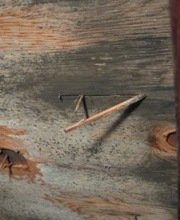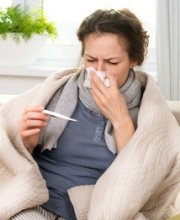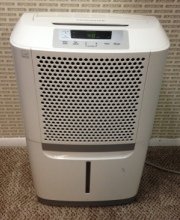Find a Mold Specialist Now
Click or Call, Toll-Free 24/7
Mold Testing Equipment
You need the right mold testing equipment if you’re going to get accurate results from a toxic mold test. We’ll tell you about the equipment typically found in do-it-yourself mold test kits and about additional equipment you may need to purchase in order to test your own home for mold. We’ll also tell you about the testing equipment you can expect a professional mold tester to have, if you decide to hire someone to test your home.
Do-It-Yourself Mold Testing Equipment
A do-it-yourself toxic mold testing kit will contain most of the equipment you’ll need to conduct the test. A test kit usually contains one or more Petri dishes for collecting mold spores. It is recommended that you test at least two areas of the home, so if you purchase a test kit with only one Petri dish, you should purchase a second kit.
 Petri dish
Petri dishIf you have mold-related health problems or a respiratory condition such as asthma, or if you are testing for mold in an area you think might be heavily contaminated with mold, you’ll need protective gear such as latex or vinyl gloves, an N-95 respiratory mask, a hair cover and shoe covers. These things are usually not included with do-it-yourself mold test kits. Of course, if you have severe respiratory problems, you may want to hire someone to test your home for mold instead of doing it yourself.
The mold test may need to be mailed to a lab, which will conduct tests to see what kind of mold is present and how much, and then mail you a report. Shipping materials and postage may or may not be included with the mold test kit.
Professional Mold Testing Equipment
Professional mold testers will have all the equipment needed for toxic mold testing, including all the necessary safety gear. Any mold samples they collect will be tested in a lab and the cost of packaging and transporting the materials to the lab will be included in the cost of having your home tested for mold. You won’t need to buy or pay for any “extras.”
Air Samplers and Surface Sampling
Professional mold testers may do surface sampling, testing various surfaces in the home for mold, but they also use air samplers to test for mold in the air. There are several types of air sampling devices, but typically a calibrated air pump is used to force any mold spores present in the air onto a prepared slide or culture dish.
Professionals usually test at least two areas of the home, as well as the air outside, and then compare the results. Whether to sample the air for mold spores or do surface sampling or both will depend on the circumstances. An experienced professional will be able to determine which type of testing is needed in your home.
It’s important that tests are handled correctly so they aren’t inadvertently contaminated with dirt or mold from outside sources, which would invalidate the test results. Most professional mold testers are engineers and are trained to handle equipment carefully and conduct tests with precision. Unfamiliar with the process, homeowners sometimes accidentally mishandle the supplies and therefore get inaccurate results.
Hygrometer
Other equipment professional mold testers may have includes a hygrometer, a device that measures the relative humidity, or amount of moisture, in the air. Mold generally grows best in places with relative humidity above 60 percent, so using a hygrometer helps professionals determine where they need to test for mold.
You can purchase a hygrometer for your home to monitor the relative humidity to help prevent mold. Follow this link to learn more about hygrometers for the home.
Particle Counter
A particle counter is a device that counts particles floating around in the air. This includes mold particles, but a particle counter counts other kinds of particles, as well, such as dust and dirt. The results give you information about the air quality in a room.
 Moisture Meter
Moisture MeterMoisture Meter
A moisture meter detects moisture on and in household materials, including wood. The device tells you how much moisture is on or in the material. Unusually high amounts of moisture indicate a likelihood of mold.
In addition to letting professionals know where to test for mold, the results also let you know where you might need to take steps to prevent mold from developing in your home.
Hiring a Professional to Test for Mold
The U.S. Environmental Protection Agency (EPA) recommends hiring a professional mold tester that follows the strict testing protocols established by professional organizations like the American Conference of Governmental Industrial Hygienists and the American Industrial Hygiene Association. They will have all the necessary mold testing equipment and the training needed to do the job correctly. For a list of qualified mold testers in your area, just follow the link.
Return From Mold Testing Equipment To Our Main Testing Page
Privacy Policy Terms and Conditions Accessibility Do Not Sell My Information Disclaimer Contact Us




